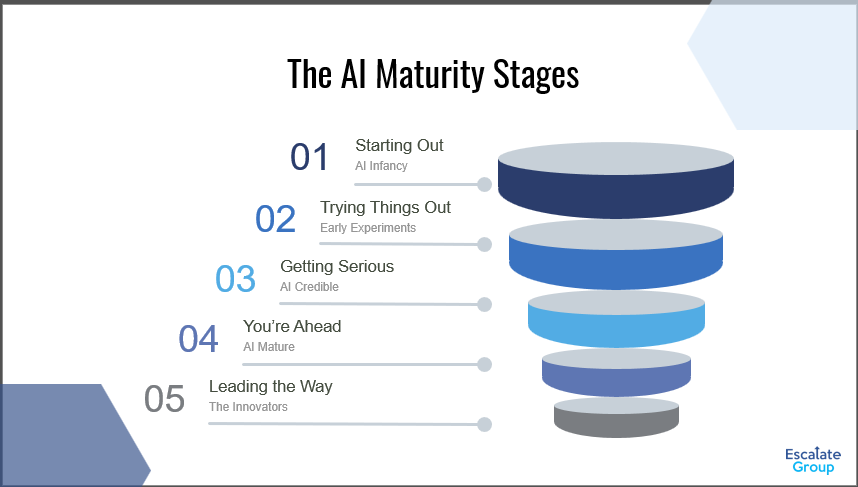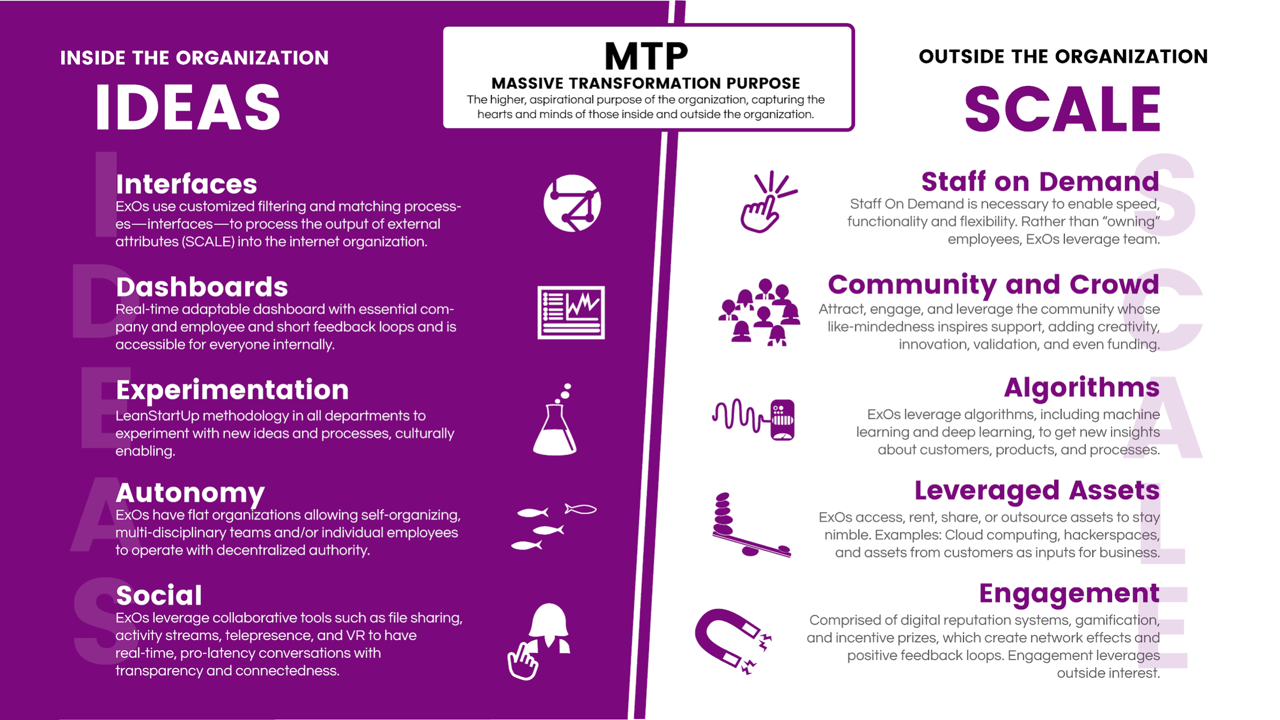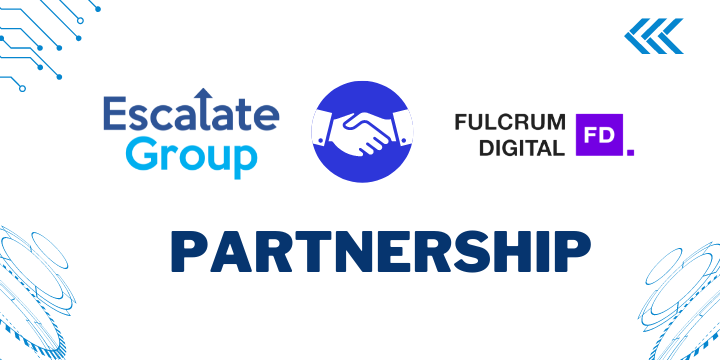Solving AI Challenges for Mid-Market Growth
July 17, 2025

Mid-sized companies often hit roadblocks with AI—talent gaps, security issues, and lack of scalability. This guide from Escalate Group offers practical strategies to turn AI complexity into measurable business growth.
Introduction: Practical Takeaways for Transforming AI Complexity into Business Growth
What’s at stake: Mid-sized companies risk falling behind if they don’t address AI’s hidden challenges—skills gaps, security risks, and stalled implementations. This guide offers clear, actionable solutions from Escalate Group to help you unlock real ROI, fast.
Artificial Intelligence (AI) is rapidly reshaping industries, but many mid-sized companies are struggling to scale AI successfully. A recent Harvard Business School article highlights three common pitfalls companies face with AI: lack of internal talent, cybersecurity gaps, and non-scalable implementation. These are precisely the challenges Escalate Group is built to solve.
1. Upskilling Mid-Market Teams for AI Transformation
Too often, companies invest in new AI tools but leave their teams behind. Without upskilling, the result is a fragmented workforce, some fluent in AI, others unsure how to engage with it.
At Escalate Group, we believe that real AI transformation starts from within. Our education services, coaching programs, and Exponential Organizations (ExO) workshops are designed to:
– Build AI literacy across departments—from HR to Sales to Legal
– Develop ethical and governance-aware leaders
– Embed AI into workflows in a way that’s practical and scalable
We create safe-to-try environments that foster psychological safety, continuous learning, and bold experimentation, crucial for any organization’s AI journey.
2. AI Security Strategy for Mid-Market Organizations
AI isn’t just powerful, it’s vulnerable. From data poisoning to model manipulation, mid-market organizations must stay ahead of increasingly sophisticated threats.
Through our strategic advisory services and Microsoft and Fulcrum Digital ecosystems, Escalate Group helps companies:
– Conduct AI-specific risk assessments
– Establish zero-trust architectures (learn more about Zero Trust principles from Microsoft)
– Maintain compliance in high-stakes sectors like finance and healthcare
We also integrate governance, compliance, and platform partners like Microsoft Azure AI to ensure robust and responsible AI deployment.
3. Driving Scalable AI ROI in the Mid-Market
AI is not a standalone solution. To drive sustainable value, it must be integrated into a company’s core business strategy.
Escalate Group enables this through:
– Tailored assessments of business and data readiness
– MVP development through innovation sprints that deliver ROI in as little as 6 weeks
– Measurable impact using KPI frameworks such as FTE reduction, time saved, and cycle time compression
Typical results: 60–80% reduction in manual work through agentic workflows and AI copilots.
We also help clients embrace agentic workflows, autonomous systems that proactively collaborate with humans—to move beyond basic automation to AI-native operating models.
Bonus: Is Your Organization AI-Ready?
Use this quick checklist to assess readiness:
– Executive alignment around AI goals and priorities
– Clear AI use cases tied to business value
– Data availability and accessibility
– Identified department-level champions
– Governance and compliance baseline in place
Conclusion: Why it Matters Now
The AI wave isn’t slowing down. But only those who address talent, security, and scalability together will ride it successfully.
Unlike generic AI vendors, Escalate Group delivers culturally aligned, fast-to-implement solutions using the ExO framework, Microsoft Copilot, and scalable innovation sprints tailored to mid-market realities.
By combining AI innovation with deep sector knowledge, agile methodologies, and Microsoft’s tech stack, as reflected in our approach to Exponential Growth and Impact, we help our clients transform today’s complexity into tomorrow’s advantage.
Let’s unlock measurable AI results in your organization.
Book a 20-minute executive briefing or explore how our AI Studio can deliver rapid ROI with minimal disruption.








